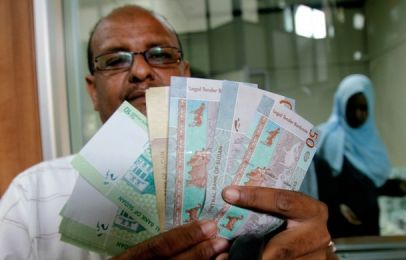Sudanese pound continues to decline against US dollar
July 15, 2012 (KHARTOUM) – The Sudanese pound has continued to decline against the US Dollar as the inflation rate reached over 37% last June, indicating the severe economic situation of the country.

As the result of a lack of hard currency in the country, the Sudanese pound commenced to decline and the black market became an important provider of foreign currencies particularly the US dollar . When South Sudan stormed Heglig last April the pound reached a historic low rate: 6.2 for one dollar.
However, the rate was stabilised at around 5 pounds for one dollar when the central bank started to provide Forex bureaus last May with hard currency and allowed it to fix a rate similar to the black market.
However due to the increase in demand and the incapacity of the central bank to keep injecting dollars, the rate has once again reached 6.2 pounds for one dollar on the black market while the official rate remains at 4.4 pounds.
Traders attributed the recent decline to the unavailability of dollars through the official channels, they also minimized the efficiency of administrative measures to control the black market.
Recently Sudan got limited Arab financial support from two Arab countries. The increase of military spending and the failure to secure more new funds, partially due to the international sanctions, complicated Khartoum efforts to overcome this difficult situation.
The hike in the dollar price impacts on food and service prices in the country.
On Sunday, Sudan Central Bureau of Statistics (SCBS) announced that the rate of inflation in the country during last June reached 37.2% while it was at 30.4% last May.
Yassen Al-Haj Abdin, SCBS secretary general, on Sunday explained this new rise by the impact of the global economic crisis on Sudan saying the country imports essential goods such as oils, wheat, sugar, powdered milk, rice, lentils and raw materials for industrial production.
Economic analysts expect that the inflation will continue to climb during the next month as the government has decided to gradually remove oil subsidies together with the increase of indirect taxes, particularly the value added tax, to cover some 2.4 billion of budget deficit.
(ST)
